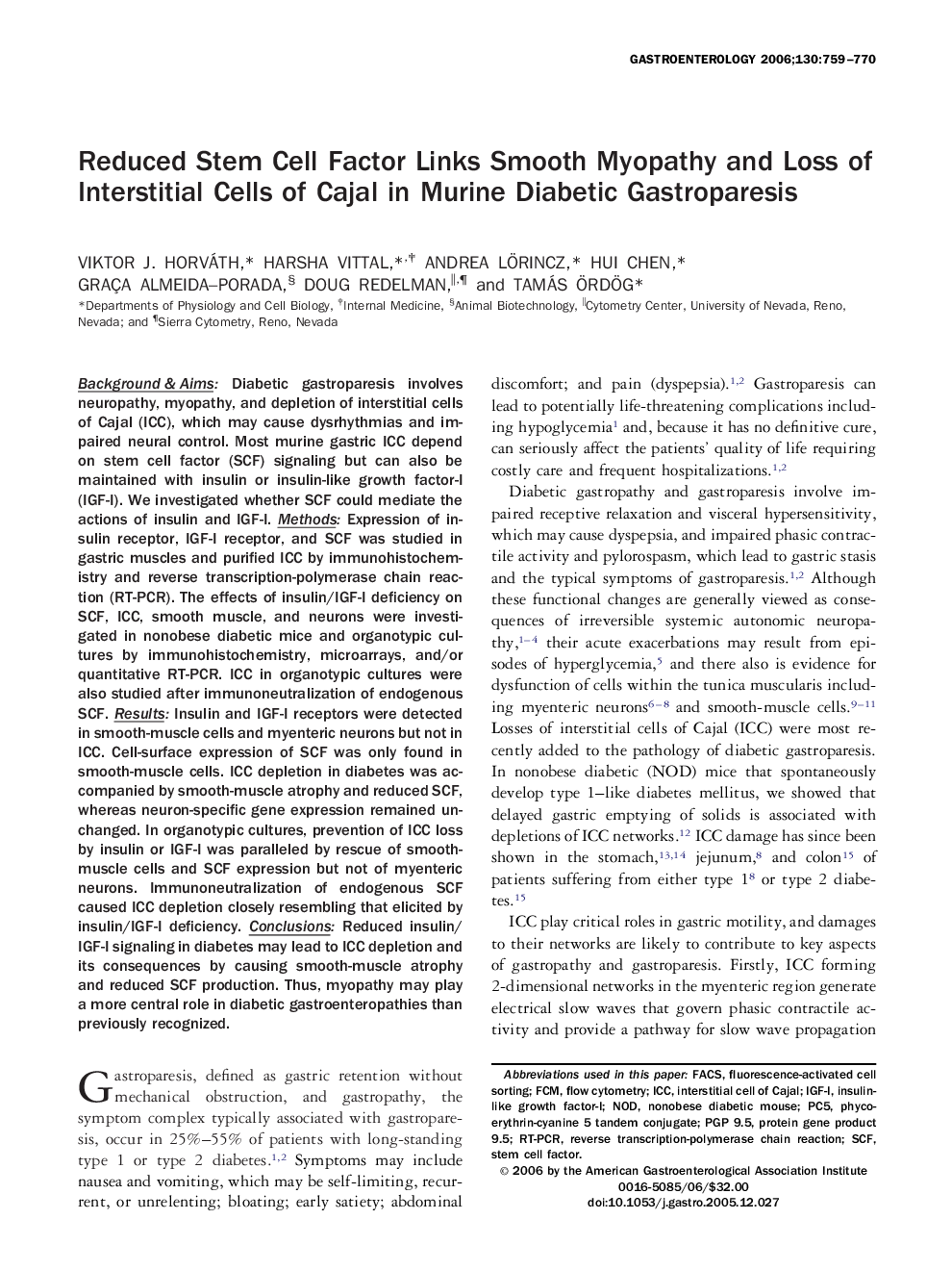| Article ID | Journal | Published Year | Pages | File Type |
|---|---|---|---|---|
| 3299221 | Gastroenterology | 2006 | 12 Pages |
Background & Aims: Diabetic gastroparesis involves neuropathy, myopathy, and depletion of interstitial cells of Cajal (ICC), which may cause dysrhythmias and impaired neural control. Most murine gastric ICC depend on stem cell factor (SCF) signaling but can also be maintained with insulin or insulin-like growth factor-I (IGF-I). We investigated whether SCF could mediate the actions of insulin and IGF-I. Methods: Expression of insulin receptor, IGF-I receptor, and SCF was studied in gastric muscles and purified ICC by immunohistochemistry and reverse transcription-polymerase chain reaction (RT-PCR). The effects of insulin/IGF-I deficiency on SCF, ICC, smooth muscle, and neurons were investigated in nonobese diabetic mice and organotypic cultures by immunohistochemistry, microarrays, and/or quantitative RT-PCR. ICC in organotypic cultures were also studied after immunoneutralization of endogenous SCF. Results: Insulin and IGF-I receptors were detected in smooth-muscle cells and myenteric neurons but not in ICC. Cell-surface expression of SCF was only found in smooth-muscle cells. ICC depletion in diabetes was accompanied by smooth-muscle atrophy and reduced SCF, whereas neuron-specific gene expression remained unchanged. In organotypic cultures, prevention of ICC loss by insulin or IGF-I was paralleled by rescue of smooth-muscle cells and SCF expression but not of myenteric neurons. Immunoneutralization of endogenous SCF caused ICC depletion closely resembling that elicited by insulin/IGF-I deficiency. Conclusions: Reduced insulin/IGF-I signaling in diabetes may lead to ICC depletion and its consequences by causing smooth-muscle atrophy and reduced SCF production. Thus, myopathy may play a more central role in diabetic gastroenteropathies than previously recognized.
